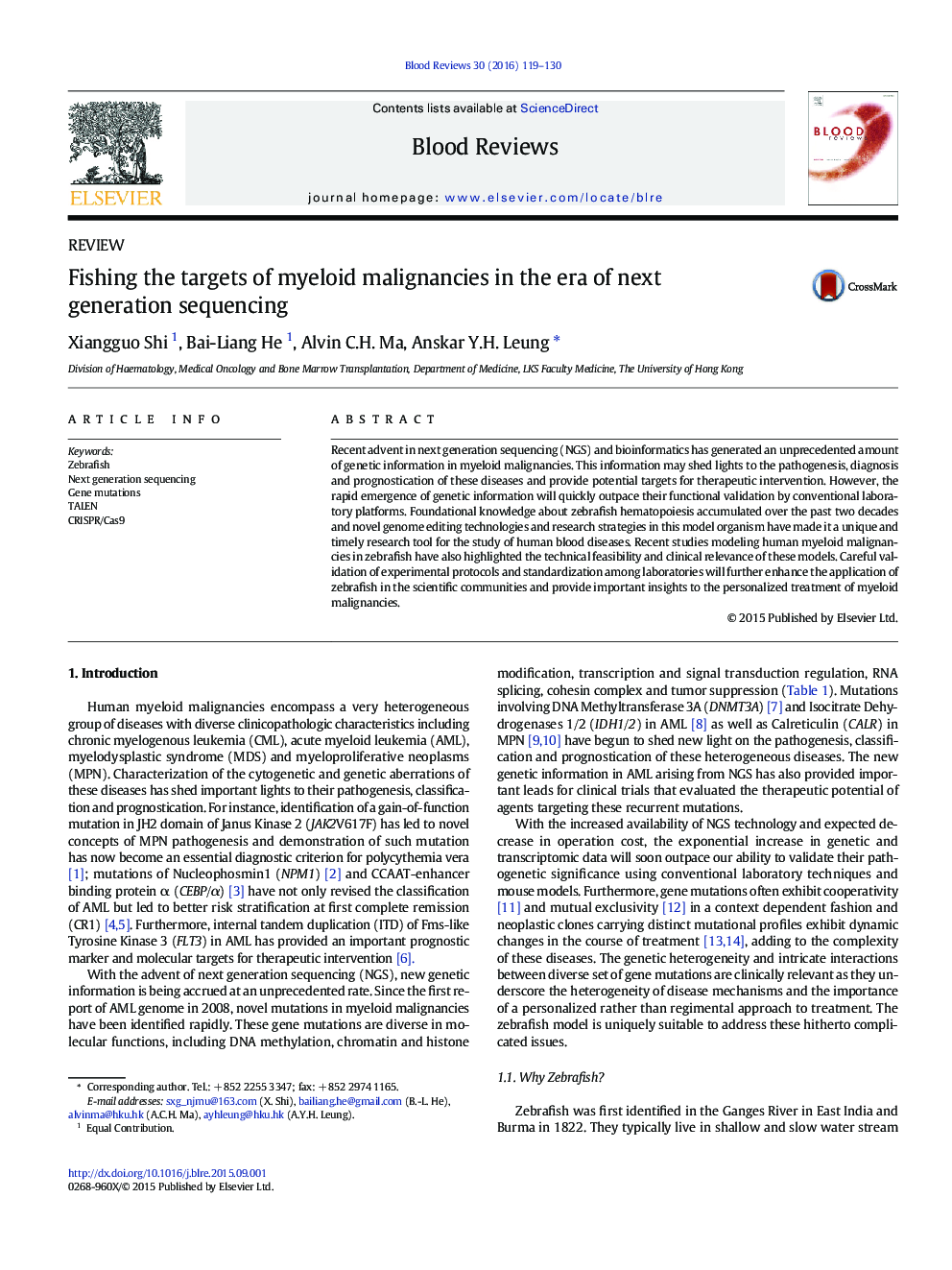| Article ID | Journal | Published Year | Pages | File Type |
|---|---|---|---|---|
| 2106146 | Blood Reviews | 2016 | 12 Pages |
Recent advent in next generation sequencing (NGS) and bioinformatics has generated an unprecedented amount of genetic information in myeloid malignancies. This information may shed lights to the pathogenesis, diagnosis and prognostication of these diseases and provide potential targets for therapeutic intervention. However, the rapid emergence of genetic information will quickly outpace their functional validation by conventional laboratory platforms. Foundational knowledge about zebrafish hematopoiesis accumulated over the past two decades and novel genome editing technologies and research strategies in this model organism have made it a unique and timely research tool for the study of human blood diseases. Recent studies modeling human myeloid malignancies in zebrafish have also highlighted the technical feasibility and clinical relevance of these models. Careful validation of experimental protocols and standardization among laboratories will further enhance the application of zebrafish in the scientific communities and provide important insights to the personalized treatment of myeloid malignancies.
